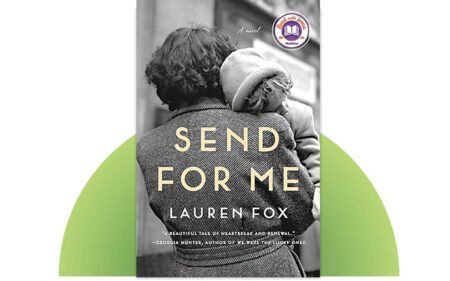While walking down the grocery aisle last week, my four-year-old shouted, “Mom! Wait! I want princess soup.” I explained to my ever-fancy child that it wasn’t actually princess soup; it was just chicken noodle soup with a picture of the Disney Princesses on the label. “So?” she persisted. I reminded her that we don’t eat chicken since we’re vegetarian. And in typical Lily fashion, she replied, “Well, if that’s what I’ve got to do…” I left the store, minus the soup, worrying about my daughter’s moral fiber and knowing my nightmare was a marketer’s dream.
“The United States is the most consumer-oriented society in the world,” writes Juliet B. Schor, author of Born to Buy. “People work longer hours than in any other industrialized country. Savings rates are lower. Consumer credit has exploded, and roughly a million and a half households declare bankruptcy every year.” Why? One of the reasons, according to Schor, is that “kids and teens are now the epicenter of American consumer culture.”
Up until the mid-1970s, the Federal Government had a history of protecting our children. Then, despite the 1978 Federal Trade Commission finding that children do not have the cognitive ability to evaluate advertising, Congress began passing legislation that allowed children to become their own marketing group. As a result, advertisers no longer have to convince parents to buy a product. Schor explains, “Today, marketers create direct connections to kids, in isolation from parents and at times against them. The new norm is that kids and marketers join forces to convince adults to spend money.”
It doesn’t take a genius to see that this new approach is “working.” According to Schor, American children view an estimated 40,000 commercials annually, make an estimated 3,000 requests for products and services each year, and accumulate an average of seventy new toys in one year. The problem is Schor’s research also shows that “those who are more involved in consumer culture fare far worse in psychological and social terms.” Her research actually disputes conventional wisdom – dysfunctional kids are drawn to consumer culture – and argues “involvement in consumer culture causes dysfunction in forms of depression, anxiety, low self-esteem, and psychosomatic complaints.” When people hear I boycott Barbie and shun Hannah Montana, they usually ask me if I’m worried about my kids fitting in; Schor’s research actually suggests, it’s me who should be asking them that question.
Originally, I selected Born to Buy for August because I thought it’d be appropriate given the Back-to-School buying craze that’s usually underway this time of year, but now I see this phenomenon extends way beyond what even a TV-and-advertising-wary parent like me thought. “We have become a nation that places a lower priority on teaching its children how to thrive socially, intellectually, even spiritually, than it does on training them to consume.” And unfortunately, I believe Schor to be correct, “The long-term consequences of this development are ominous.”
Unbeknownst to me, my husband, who is not a vegetarian, asked Lily if she wanted him to buy some princess soup; he was more than happy to eat the contents so she could have the can. Much to my relief, my daughter redeemed herself and declined his offer. Still, I worry that my girls will sell their souls for something else that shimmers so I’m going to dive into this debate and see for myself whether they are being empowered or seduced. What do you think? Are we teaching kids they are what they own?






